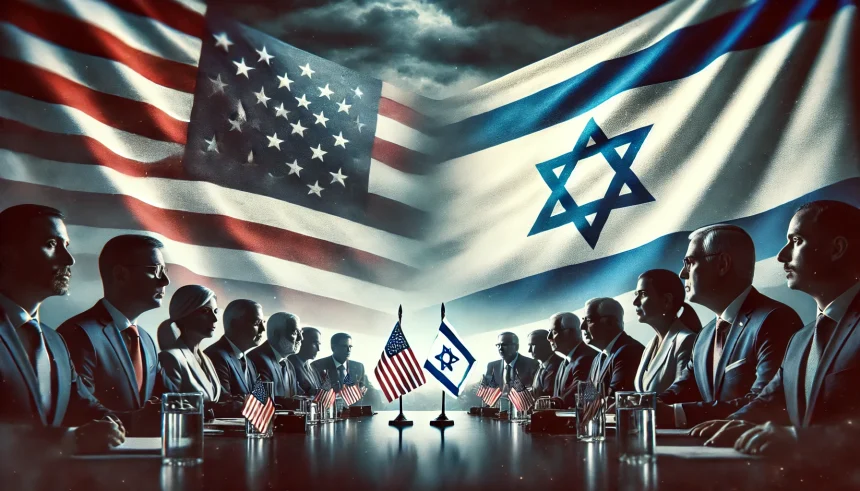Washington, August 2024 – The United States has voiced strong disapproval of Israeli Prime Minister Benjamin Netanyahu’s hardline ceasefire stance amidst ongoing conflicts in the Middle East. The US criticizes Israeli PM for what officials describe as a “maximalist” approach, complicating efforts to reach a peaceful resolution in the region.
The Ceasefire Dispute
The current tension revolves around Israel’s stringent demands for a ceasefire, which the US views as too rigid and counterproductive. The Israeli Prime Minister’s hardline ceasefire stance includes terms that many believe are unattainable for the opposing side, leading to a stalemate in negotiations.
US officials have expressed frustration with Netanyahu’s refusal to soften his maximalist ceasefire position, arguing that it hinders diplomatic efforts and prolongs the conflict. “The Israeli PM’s approach is making it nearly impossible to achieve a lasting peace,” said a senior US diplomat. “We need flexibility, not inflexibility, to resolve this situation.”
US-Israel Relations Strained
The US criticism of Israeli PM Netanyahu has led to a noticeable strain in US-Israel relations. Historically strong allies, the two countries are now at odds over how to approach the ceasefire. The hardline ceasefire stance taken by Netanyahu is seen by some in Washington as an obstacle to broader peace in the Middle East, and there are growing concerns about the long-term impact on diplomatic ties.
“The relationship between the US and Israel is vital,” said a former US ambassador to Israel. “But the current situation, where the US criticizes Israeli PM Netanyahu for his inflexibility, could create lasting damage if not managed carefully.”
International Reactions
International reactions to the US criticism of Israeli PM have been mixed. Some European leaders have echoed Washington’s concerns, calling for a more balanced approach to ceasefire negotiations. Meanwhile, Netanyahu’s supporters argue that his hardline ceasefire position is necessary to ensure Israel’s security and sovereignty.
“The Israeli government has every right to set conditions that protect its people,” said an Israeli official. “However, the US criticism of Israeli PM Netanyahu fails to acknowledge the security threats that Israel faces.”
Future Implications
The disagreement over the ceasefire is likely to have far-reaching implications for both US-Israel relations and the broader Middle East peace process. The US criticizes Israeli PM Netanyahu’s stance not just for its immediate impact on ceasefire talks, but also for its potential to shape future negotiations and alliances in the region.
As the situation develops, both countries will need to navigate these tensions carefully to avoid further escalation. The hardline ceasefire stance adopted by the Israeli PM remains a significant point of contention, and its resolution will be crucial for the stability of the region.
Conclusion
The US criticism of Israeli PM Benjamin Netanyahu’s hardline ceasefire stance highlights the complex dynamics at play in the Middle East. As the US and Israel work to resolve these differences, the future of their alliance and the prospects for peace in the region hang in the balance. The world will be watching closely as these negotiations unfold.







